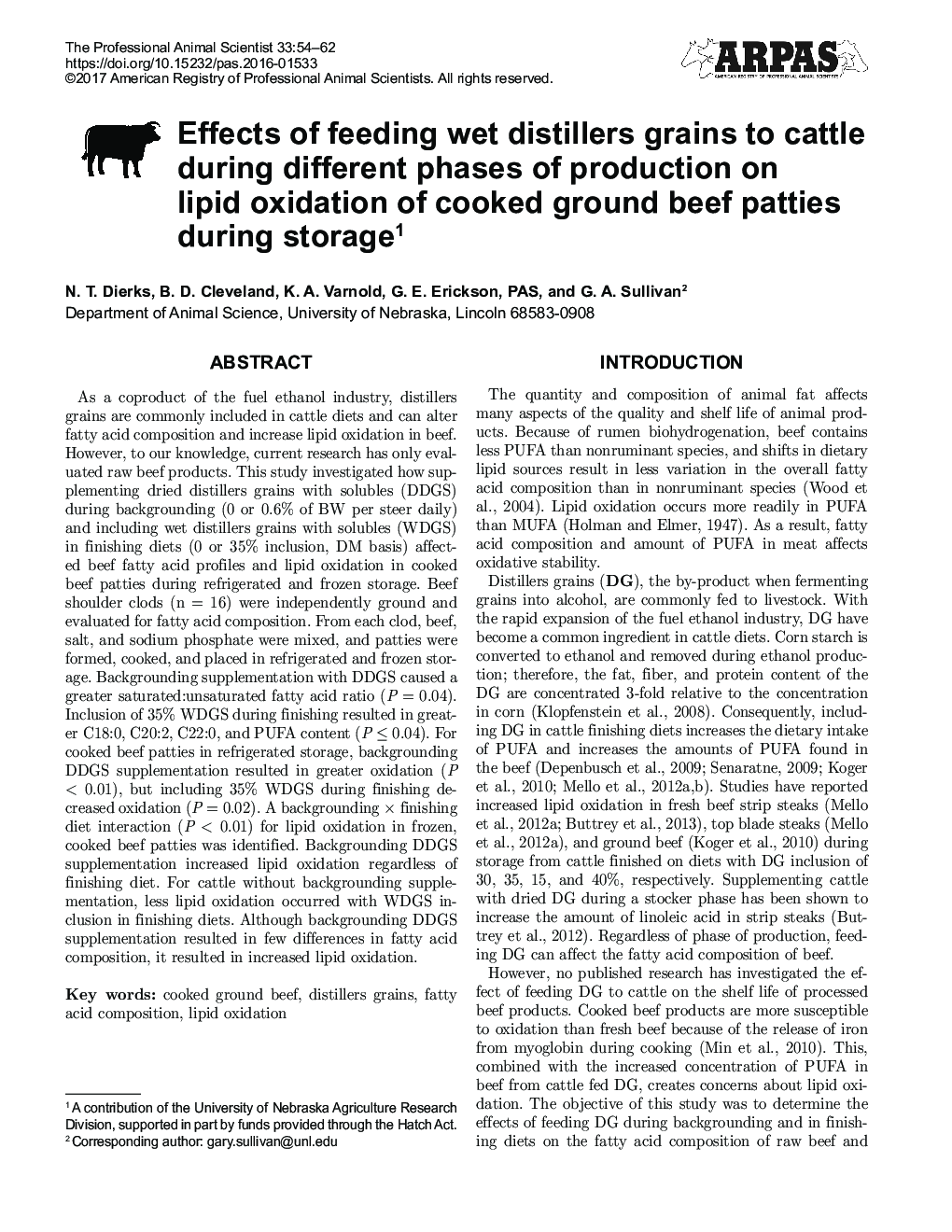| Article ID | Journal | Published Year | Pages | File Type |
|---|---|---|---|---|
| 8503783 | The Professional Animal Scientist | 2017 | 9 Pages |
Abstract
As a coproduct of the fuel ethanol industry, distillers grains are commonly included in cattle diets and can alter fatty acid composition and increase lipid oxidation in beef. However, to our knowledge, current research has only evaluated raw beef products. This study investigated how supplementing dried distillers grains with solubles (DDGS) during backgrounding (0 or 0.6% of BW per steer daily) and including wet distillers grains with solubles (WDGS) in finishing diets (0 or 35% inclusion, DM basis) affected beef fatty acid profiles and lipid oxidation in cooked beef patties during refrigerated and frozen storage. Beef shoulder clods (n = 16) were independently ground and evaluated for fatty acid composition. From each clod, beef, salt, and sodium phosphate were mixed, and patties were formed, cooked, and placed in refrigerated and frozen storage. Backgrounding supplementation with DDGS caused a greater saturated:unsaturated fatty acid ratio (P = 0.04). Inclusion of 35% WDGS during finishing resulted in greater C18:0, C20:2, C22:0, and PUFA content (P ⤠0.04). For cooked beef patties in refrigerated storage, backgrounding DDGS supplementation resulted in greater oxidation (P < 0.01), but including 35% WDGS during finishing decreased oxidation (P = 0.02). A backgrounding à finishing diet interaction (P < 0.01) for lipid oxidation in frozen, cooked beef patties was identified. Backgrounding DDGS supplementation increased lipid oxidation regardless of finishing diet. For cattle without backgrounding supplementation, less lipid oxidation occurred with WDGS inclusion in finishing diets. Although backgrounding DDGS supplementation resulted in few differences in fatty acid composition, it resulted in increased lipid oxidation.
Related Topics
Life Sciences
Agricultural and Biological Sciences
Animal Science and Zoology
Authors
N.T. Dierks, B.D. Cleveland, K.A. Varnold, G.E. PAS, G.A. Sullivan,
